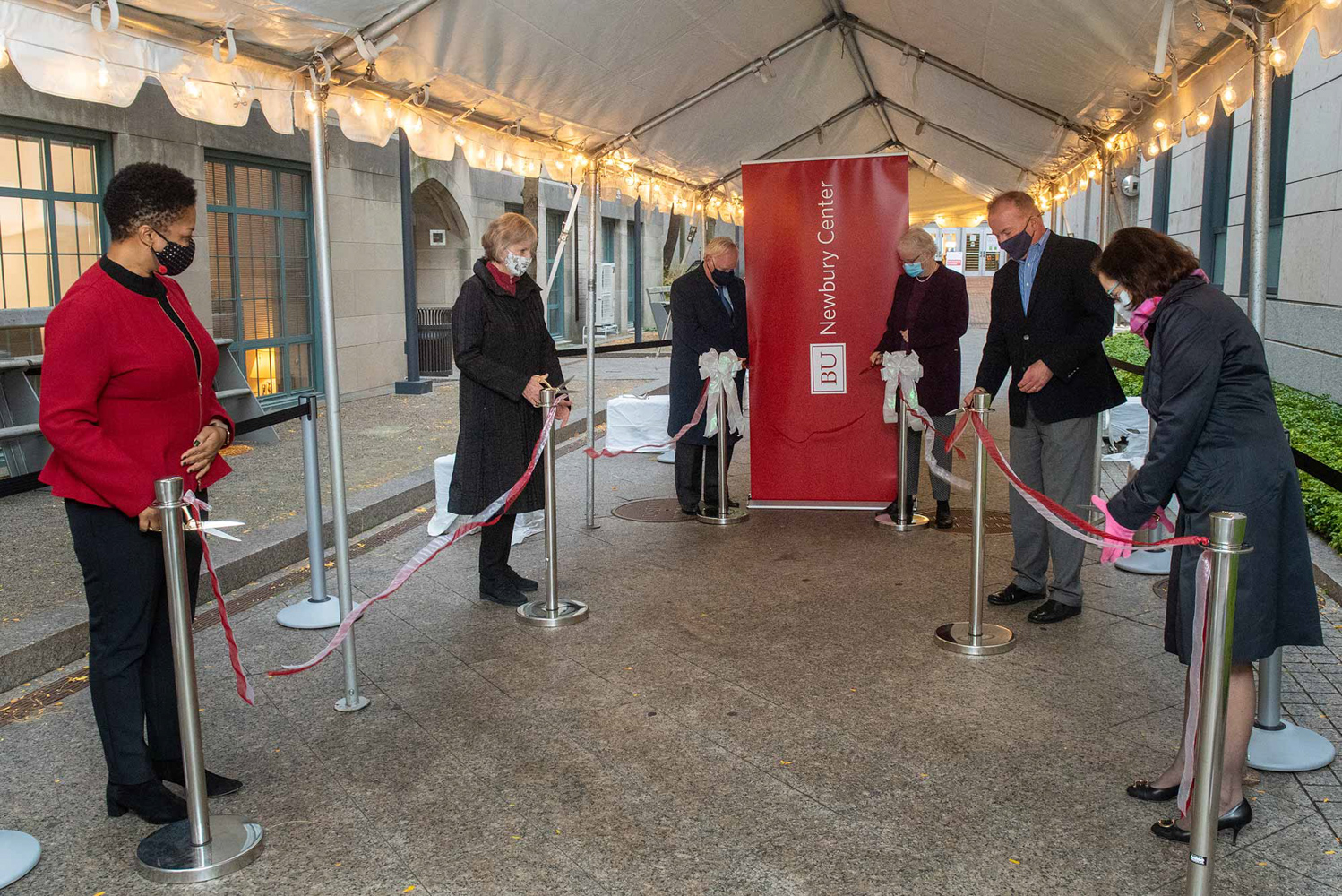
Boston University hosted a first-generation faculty and staff reception at the George Sherman Union Sept. 19 to provide an opportunity for them to connect and create a stronger network.
Maria Dykema Erb, director of BU Newbury Center and first-generation college graduate, said creating a network of first-generation professionals at BU could also help first-generation students.
“Being able to see that there are faculty and staff who are here at BU who might have shared a similar experience to them is really worthwhile and valuable,” Erb said.
BU Manager of Faculty Diversity Initiatives Megan Segoshi said a similar staff luncheon last year showed interest among BU faculty. She said first-generation faculty and staff are a group that needs more support and services.
“This is both a program for us to generate more programs and services, but it’s also an opportunity for folks to build community,” Segoshi said.
BU Assistant Professor of Music and Music Education Kính T. Vũ is a first-generation faculty member and said that when he arrived, BU did not provide him direct assistance as a first-generation faculty member. However, he said the College of Fine Arts offered resources to him as an assistant professor.
Vu said the Newbury Center has differentiated between first generation undergraduate and graduate students which allows them to give specialized help to different kinds of first-generation students has been beneficial.
“When I was a college student or a graduate student, there was not really a formalized support network in which I could meet people who had similar experiences as me,” Vu said.
Erb said an institution like the Newbury Center dedicated to first-generation students is still rare on college campuses.
“We’re one of the few centralized centers on a university campus that supports not only first-gen undergrads but grad and professional students,” Erb said. “Now we’re taking it to this next level of supporting our first-gen professionals.”
However, building a community can be difficult for first-generation professionals as they advance further in their education, according to Vu.
“I really had to search out opportunities to meet people who were anywhere close to first-gen at the Ph.D. level,” Vu said.
Erb said having a first-generation community and network at the beginning of their career could help those professionals get guidance and avoid missteps.
“Sometimes folks won’t know that they were first-gen,” she said. “But, being able to see each other, get to know one another, build community, people start saying, ‘hey, I want to be part of this community. What can I do to help?’”























































































































